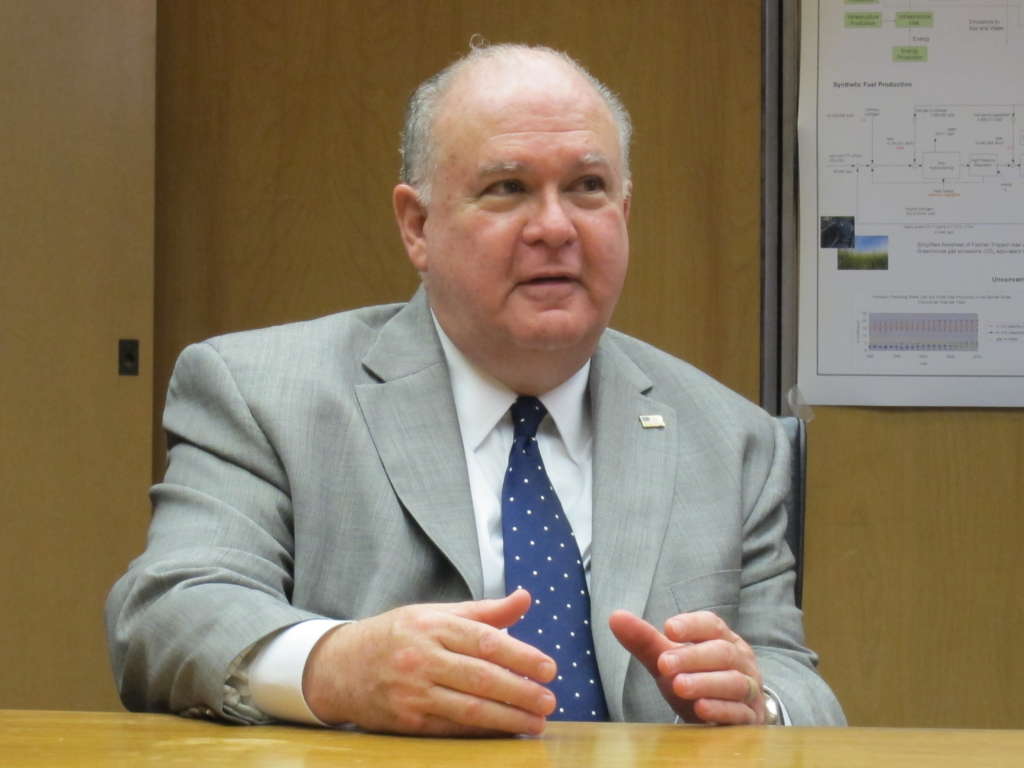Washington- U.S. ambassador to Saudi Arabia Joseph W. Westphal highlighted the Saudi Deputy Crown Prince Mohammad Bin Salman’s visit to the U.S. and his meeting with President Barack Obama, U.S. foreign and defense secretaries of state, congress members and leading businessmen of American corporates.
Ambassador Westphal pointed out that the strength and permanence of the Saudi-American relationship runs deep and steady despite the existing difference in perspective when broaching Middle East and Iran suits, the divergence does not translate into the relationship being undergoing a tense state-of-affairs.
Westphal described the visit as essential, especially concerning the economic area. Prince Mohammed’s visit to the U.S. Chamber of Commerce and meeting with corporate leaders in Washington, New York and California was extremely significant as to promote for the Kingdom’s 2030 vision.
The royal visit to the U.S. would evidently attract U.S. investment into the Kingdom. He pointed out that corporate leaders and Prince Salman’s exchange of information plays a great part in moving forward with realizing the Kingdom’s vision.
In an exclusive interview with Asharq Al-Awsat newspaper, the U.S. ambassador stressed the importance of Saudi-U.S. cooperation in different domains, and chiefly in security and military aspects as to fight terrorism. He also stressed the Kingdom’s role in fighting ISIS, pointing out that the recent terror attack against a Florida nightclub confirms that the newfangled form of terrorism poses a modern day threat and confirms the necessity of international cooperation to fight all forms of terrorism and extremist violence whether through military efforts or ideology.
Following is a selected set of questions answered by ambassador Westphal,
This is the third visit Prince Mohammed bin Salman takes to U.S., after his first in May, 2015 visit to Washington with Crown Prince Muhammad bin Nayef – just before the 2015 Camp David Summit; and the second being last September accompanying the Custodian of The Two Holy Mosques King Salman bin Abdulaziz. How important is this visit specifically?
I believe that this visit holds a particular significance which differs from others. It is Prince Mohammed’s first official visit as a Deputy Crown Prince, and the importance of this visit falls into two; the first being demonstrating the Kingdom’s 2030 vision which the Prince launched last April. As to exhibit the aspiring Saudi roadmap for transformation, oil independence and the diversification of the economy and thus referring to the U.S. business community to establish a partnership and a better cooperation, attracting U.S. investment to the Kingdom.
The second encompasses the discussion of regional cases like Syria, Yemen, Iraq, Iran and Libya with U.S. administration officials. In addition to the discussion of U.S.-Saudi bilateral relationship, which is being challenged by the difference in visions and policies. This is why Prince Mohammed bin Salman’s visit and face-to-face meeting with officials and congress members is considered especially important as to discuss those visions and concepts.
U.S. President Barack Obama will be receiving Prince Mohammed bin Salman next Thursday… a number of analysts point out to the importance of such a meeting, based on what is being rumored on tensions and disputes spurring a U.S.-Saudi controversy based concerning the U.S.-Iranian approach… how would you comment on that?
Many things were said concerning a U.S.-Saudi strain, yet I do not see into that tension, President Barack Obama’s meeting with the Custodian of the Two Holy Mosques King Salman bin Abdulaziz in Riyadh was very important, of course there are some differences concerning Iran and resolving the situation in Syria, and humanitarian rights. However, that does not mean that there aren’t ongoing positive and fruitful discussions achieving the same target, which is resolving crises and accomplishing stability. Leaders’ meeting confirms all of that.
President Obama’s meeting with Prince Mohammed bin Salman is proof on the persisting communication among the two countries, in addition to the detailed daily work with officials.
How are strategic and security Saudi-U.S. relationships going on one hand and the Gulf-U.S. generally on the other?
Truly there are strong historical, security based, and strategic relationships which connect each of the U.S., Saudi Arabia and the Gulf Council Cooperation. This is why Prince Mohammed bin Salman’s meeting with Secretary of Defense Ashton Carter is considered vital. Taking into consideration that this is a chance to discuss security and military cooperation, on one hand, and the U.S.-Gulf cooperation on the other.
It is also a chance to discuss the how-to on carrying forward with the deliberations and agreements struck at the GCC’s summit last April and following through with the results and agreements achieved at Camp David last May, the military cooperation across many regions like the ballistic missile system, Cyber security, the deepening of partnership and cooperation to face external threats and accomplish stability.
